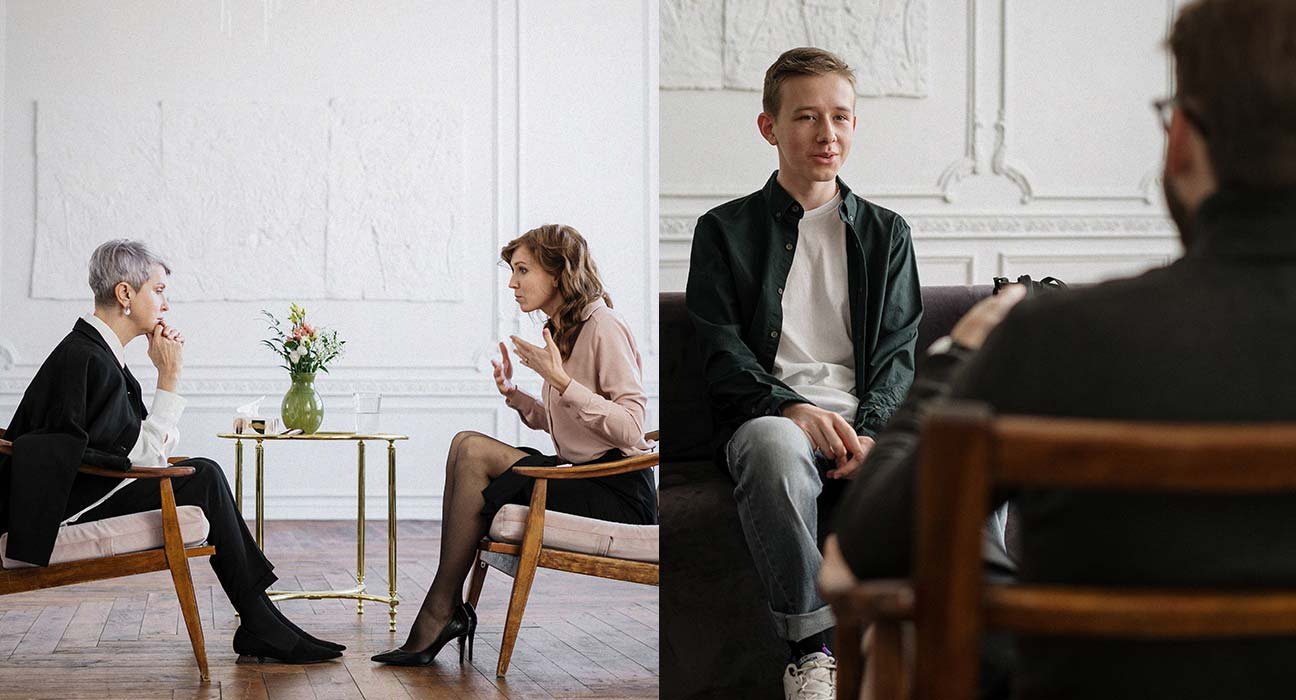The two terms counselling and psychotherapy, even though they sound the same and many times have been used interchangeably are quite different in their meaning. Counselling and psychotherapy both involve a practitioner who is involved in giving talk therapy to their clients. Both share similarities, including the provision of a safe space, confidentiality, and utilization of various guidance techniques, all of which adhere to specific ethics and responsibilities. The course of counselling, therapy is generally shorter than the course of psychotherapy treatment.
Counselling focuses on more short-term problems and gives direct solutions to them as well. It uses techniques such as CBT, psychoanalysis, motivational interviews etc and focuses on a patient by giving them guidance regarding their problems. If a patient exhibits symptoms or serious problems, healthcare providers refer them to a clinical psychologist or a psychiatrist.
Goals of Counselling
1) Problem-Solving:
Counselling focuses on identifying specific problems and developing strategies to overcome them and, It’s particularly effective for issues like stress management, relationship conflicts, grief, and career transitions.
2) Skill Development:
Clients in counselling learn practical skills and techniques to manage their challenges. These skills might include communication techniques, stress-reduction strategies, and decision-making skills.
3) Short-Term Focus:
Counselling aims to promptly tackle pressing concerns and equip clients with tools for managing their present-day issues. The emphasis is on resolving current difficulties rather than delving deeply into underlying causes.
4) Supportive Environment:
Counselling often creates a safe space for clients to express their feelings and concerns while receiving empathetic support from the counsellor.
Navigating Immediate Challenges
Thus counselling helps you sort out your problems through short-term, direct approaches which help you guide your way out of the problems. It is not that focused on dealing with the core problems that might be causing you psychological problems. In that case, psychotherapy directs its focus towards the underlying core problems that could potentially be causing surface-level issues. Psychotherapy involves an extended duration of treatment and addresses various significant challenges. A structured treatment plan is formulated and adhered to throughout the process. It offers long-term therapeutic solutions to problems that are more permanent and helps you heal on a much deeper level.
Psychotherapy for Lasting Change
The techniques used in psychotherapy vary, most therapists follow an eclectic approach which utilizes the best of all techniques to give the most suitable way to give therapy and, they use therapies such as psychodynamics, CBT, DBT, interpersonal therapy, REBT etc.
1) Insight and Self-Exploration:
Psychotherapy aims to help clients gain insight into their thoughts, emotions, behaviours, and underlying patterns. By understanding these aspects, individuals can make profound and lasting changes in their lives.
2) Long-Term Change:
Psychotherapy focuses on creating lasting and fundamental changes in a person’s emotional and psychological well-being. It addresses not only symptoms but also the underlying causes of distress.
3) Past and Present Exploration:
Psychotherapy often delves into an individual’s past experiences, relationships, and childhood to uncover patterns that might be contributing to current challenges.
4) Holistic Approach:
Psychotherapy takes a more holistic view of a person’s mental and emotional health, considering various aspects of their life, including family dynamics, childhood experiences, and cultural influences.
Guiding Transformation
Psychotherapy indulges in a person’s inner world and deals with all the emotional aspects and behaviours and cognitions that they have to give a permanent solution to their problems. Counselling provides practical solutions to life problems, resembling guidance that individuals need to approach and address proactively. The choice between counselling and psychotherapy depends on the nature of the problem one is facing if it is a difficult problem that needs a deeper understanding or support then psychotherapy is beneficial but if the problem is just practical and requires short-term problems and practical solutions then counselling is preferred which offers much more direct solutions which are short term and are not that healing in nature. Thus, both possess distinct goals and treatment plans that require careful consideration in relation to the problems requiring treatment.













Leave feedback about this